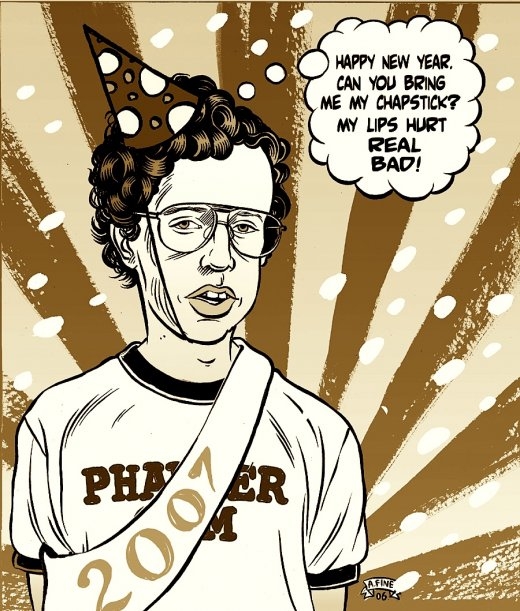
*
 UPDATE: We have since determined that there was nothing wrong with our camera equipment and that the only reasonable explanation for the ‘funny-ness’ is that the Mayor-elect chomped down two, possibly three buttons of peyote shortly before our interview this morning. If true, this is the kind of bold, visionary leadership we have been praying for. Truly, a ‘new day’ has dawned in Philadelphia. CLICK HERE TO SEE FOR YOURSELF.
UPDATE: We have since determined that there was nothing wrong with our camera equipment and that the only reasonable explanation for the ‘funny-ness’ is that the Mayor-elect chomped down two, possibly three buttons of peyote shortly before our interview this morning. If true, this is the kind of bold, visionary leadership we have been praying for. Truly, a ‘new day’ has dawned in Philadelphia. CLICK HERE TO SEE FOR YOURSELF.
*
Q&A With The Stooges’ Ron Asheton

PHAWKER: Do you recall the first time you met Iggy — legend has it he saw you and your brother standing outside of the record store that he was working at spitting on people?
RON ASHETON: Well, no. It was actually my brother, not me… My brother and his buddies used to hang out front, and they weren’t really spitting at people, but they were standing in front, cause that was the best place to hang out. Everyone went to the corner record store, because the management had celebrities in there, like Dionne Warwick came and signed autographs, it was the big deal to have people come and do those little in-stores. I spent a lot of time there, and he saw my brother and some of his bad friends just spitting on the sidewalk, not really spitting on people. But I got roped into it, because someone complained that they actually were spat on and the police came. I just happened to be walking up as the cops came in and I just got lumped in. I went “Uh…I wasn’t doing it.” So we all had to go to the police station the next day, but I didn’t bother to go, so there was a warrant for my arrest. So, that’s when Iggy really noticed us and started talking to us. MORE
*
Q&A: Everything You Ever Wanted To Ask Monty Python But Couldn’t ‘Cuz You Didn’t Have His Phone Number
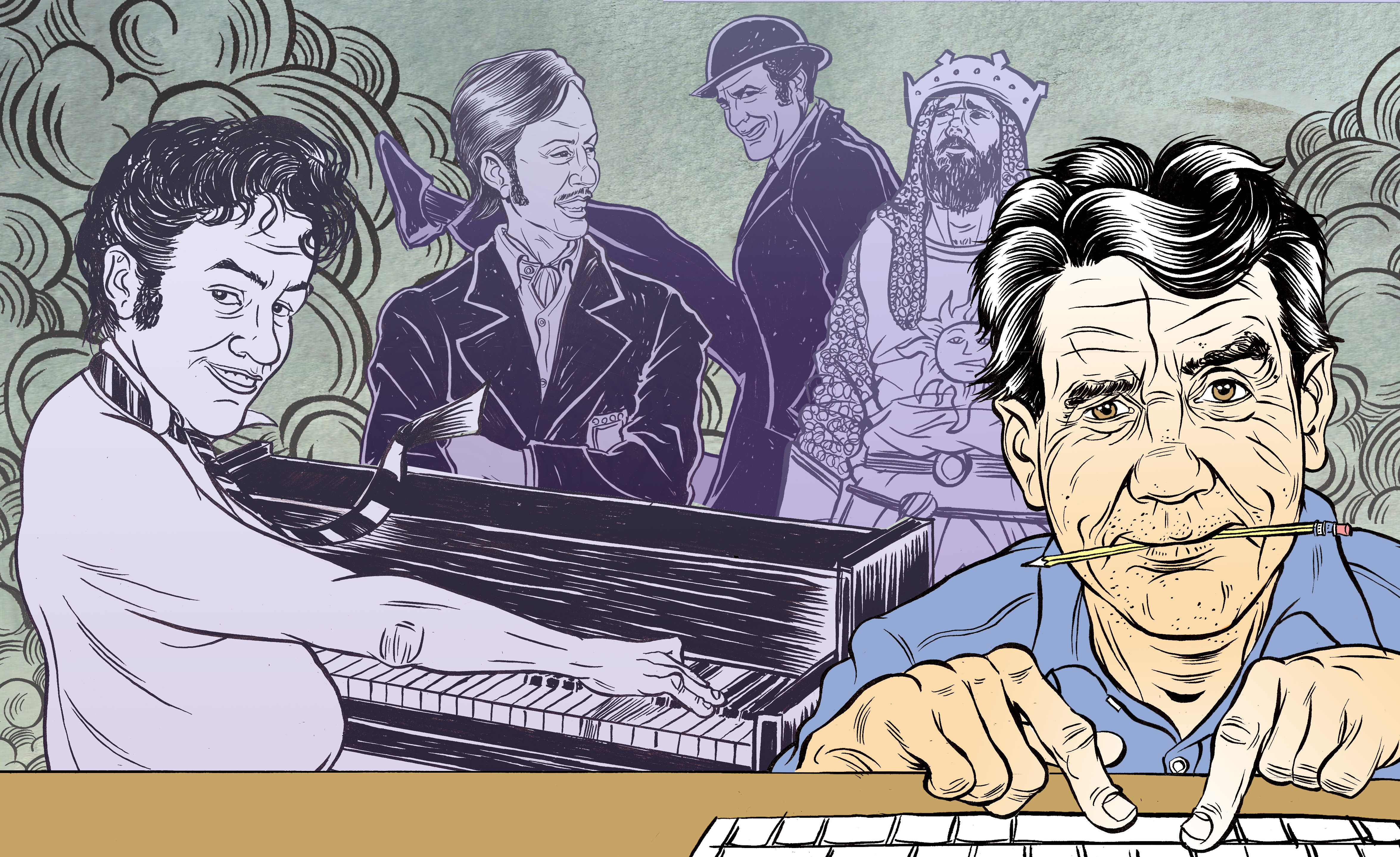
PHAWKER: One thing that struck me was that the book covers 1969 to 1979, which is pretty much Woodstock to Studio 54, and yet there is almost no mention of drug use. I think the most tawdry thing that happens is the SNL cast sneaks into your bedroom at the Essex House for a ’smoke.’ How is this possible? It’s the ’70s!
MICHAEL PALIN: Well, you have to be careful what you say these days — you have to say you don’t inhale. When was editing I would ask myself, “Do I put in that so and so did a line of coke or not?” but it didn’t happen with Python. Eric knew more people that did drugs than anyone else, but we didn’t really get involved at all. Although I think Graham smoked and we all did some marijuana. But it wasn’t central to the work and I think it’s important to say that because there are people who say ‘You guys must have been high as kites when you did this’ when in fact we weren’t and with the exception of Graham, fairly sober. If anything we used alcohol more than drugs. MORE
*
AUTHOR, AUTHOR: 13 Things You Are Not Supposed To Know About Daniel Handler, AKA Lemony Snicket
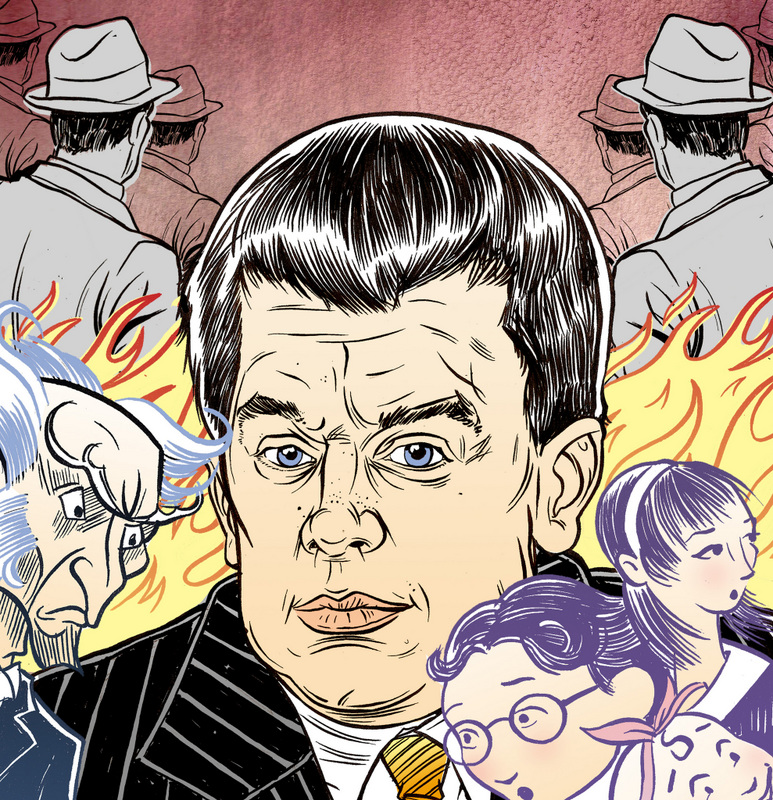
1. Mr. Handler is answering these questions while sipping his second Blanton’s in his posh room at the Four Seasons.
2. Mr. Handler recently met Barack Obama, who told him unprompted that his kids have not read ANY of his books, but they did see the movie Lemony Snicket: A Series Of Unfortunate Events. Mr. Fielding was very impressed with Mr. Obama’s candor. Mr. Handler would have lied and said his kids have read ALL of Mr. Obama’s books — if the shoe had been on the other foot. MORE
*
AUTHOR, AUTHOR: Rick Moody Q&A
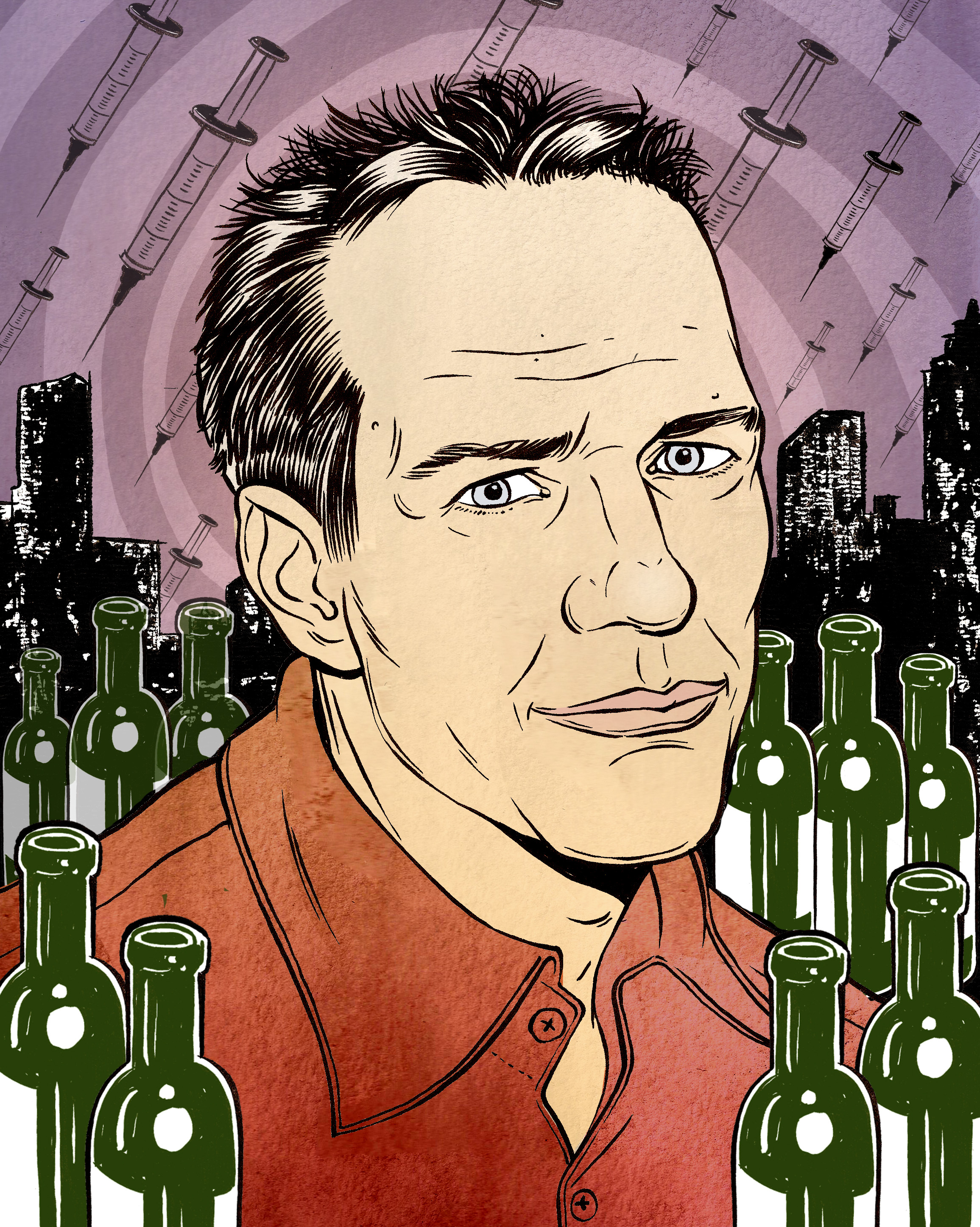
PHAWKER: Can you tell me a little about how you cope with that and how did you replace the role that alcohol once played in your writing and your creative processes?
RICK MOODY: I was a really bad writer before then. I was mostly very self-involved. As any addict would tell you, sort of more interested in kind of servicing the addiction than doing anything, or much else, competently. Even though I managed to get through graduate school, I spent a lot of graduate school drinking. My feeling now is that alcoholism and writing don’t go well together, despite the romance of drinking and writing that’s so ingrained in American literature. I for one couldn’t think cogently about psychology and emotional lives of people and so forth. Nor could I even really be intra-psychic to the degree that I would think about anybody else’s problems if I was spending most of the time drinking or getting over a hangover. So, and furthermore I often wrote while drinking. So my creative process improved dramatically when I wasn’t see double while I was writing, which I legitimately was doing. I would type — in those days, moodyrickhat.jpgI was working on a typewriter — I would type until I couldn’t see straight. And I guarantee you I wasn’t making very good decisions about character or plot or anything if I was writing under those conditions. So things improved dramatically because I was sober enough to sort of think about what I was doing. The sort of rehab/psych-ward experience made me also start feeling a lot more sympathy for other people and their troubles.
*
Q&A w/ Sir George Martin, Producer & Pater Familias, Species Beatles Britannia
These questions were submitted to Sir George via email on behalf of the Inquirer, but unfortunately the answers showed up a day after the story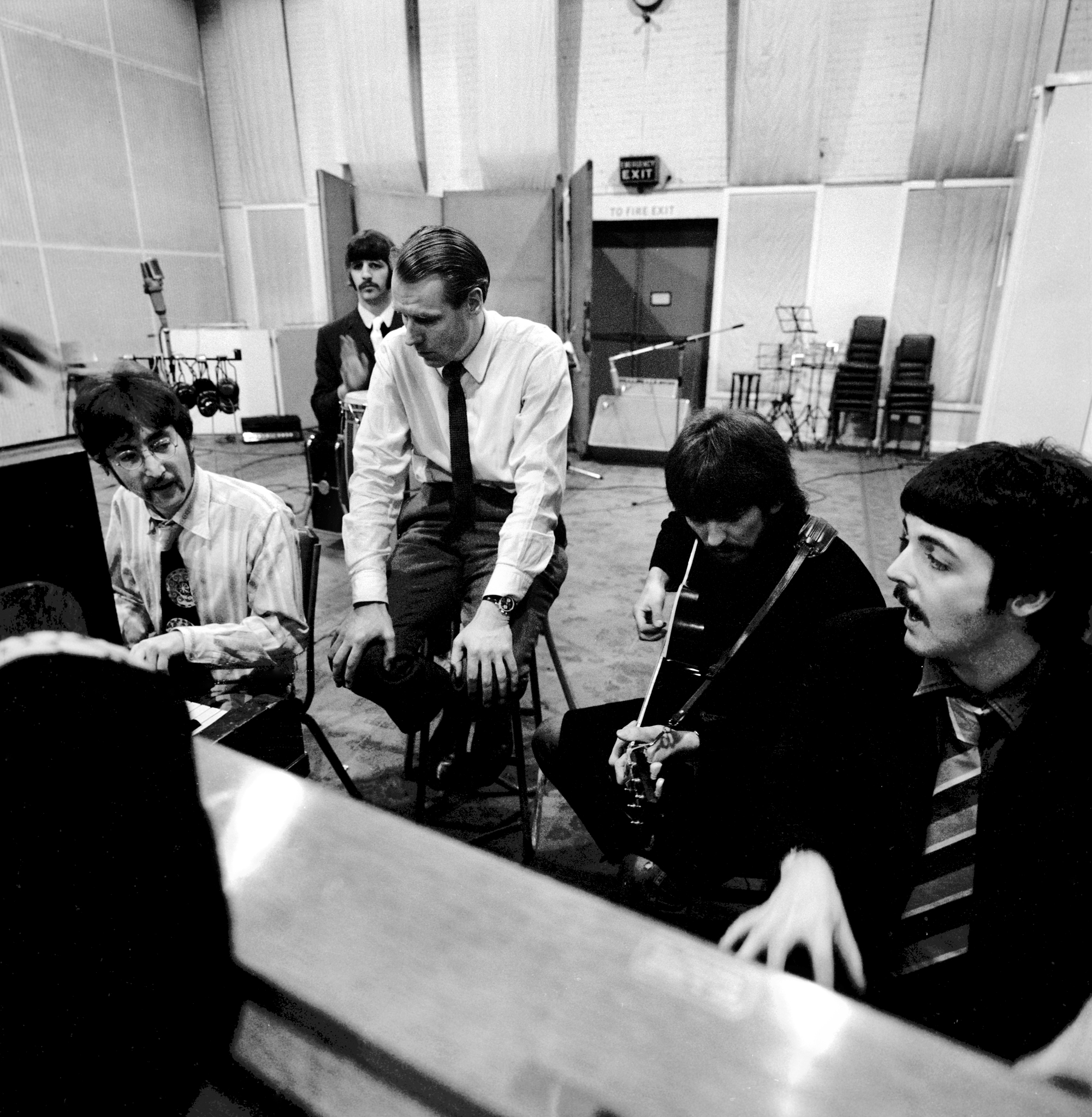 ran. But as we often find ourselves saying ’round the Phawker water cooler, better late than never…
ran. But as we often find ourselves saying ’round the Phawker water cooler, better late than never…
PHAWKER: I am sorry to learn that a hearing problem makes a phone interview impossible. I am a HUGE fan, and would have savoured the sound of your proper English accent. Can you tell me about your hearing condition — I realize it’s a bit personal, but it is a bit like Beethoven — and how did it impact the way you worked on the Love album, which sounds FANTASTIC by the way.
GEORGE MARTIN: Thank you for your comments on Love. My hearing has been slowly deteriorating for a number of years, and now with old age it is getting worse. The main problem is not with music but with speech, which makes phone calls so tedious. As you know, hearing gets worse by losing the upper frequencies, and the critical level for speech is between 2 and 3k. Music is still OK at those frequencies, one just is aware that things like finger cymbals and the upper notes of piccolos disappear. Poor Beethoven had a rotten time, but I am coping. It is not going to get better!
*
BOOKS: Q&A With Ant Farmer Simon Rich

PHAWKER:What about the ‘love coupons’?
SIMON RICH: I’ve definitely received love coupons before, but I’ve never quite been in the situation where I became that pathetic that I tried to redeem that after being dumped, but it definitely crossed my mind and that’s where the piece came from. And my nails never grew to such freakish lengths. MORE
*
GRUMPY OLD MEN: Sir, The Barbarians Are At The Gate
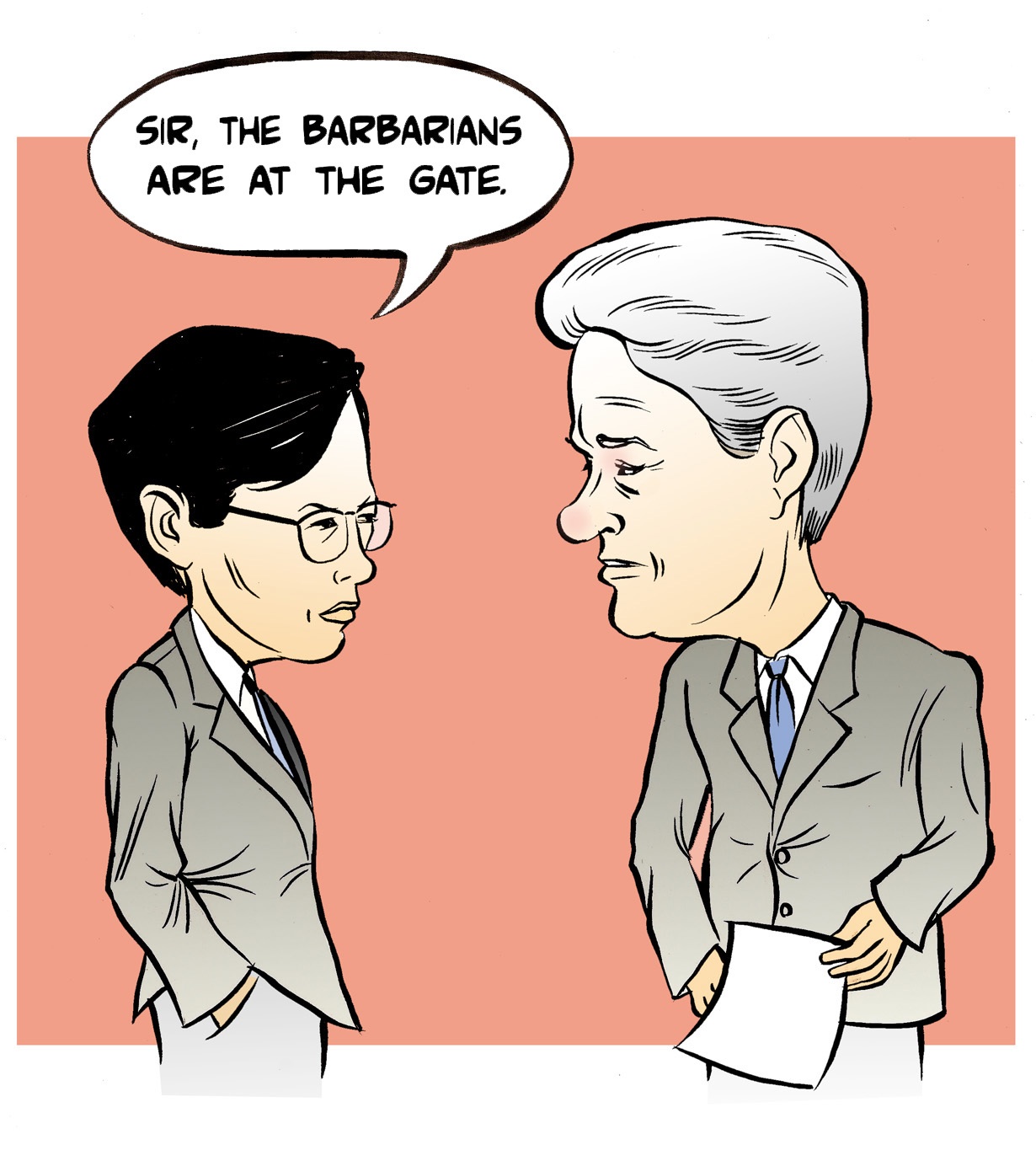
Mr. Blumenthal was in town last week to talk about his new book, How Bush Rules: Chronicles of A Radical Presidency, at the National Constitution Center. Given all the above, we thought Mr. Blumenthal was an ideal guy to talk to on the eve of an election that may well prove to be a sea change in this country.
PHAWKER: Sid, thanks for comin’ on the blog today. I realize we don’t have much time so just to cover as much ground in as little time as possible, I’m just gonna throw out a topic — Iraq, War on Terror, suspension of Habeas Corpus — and you give us the Sidney Blumenthal read, circa right now. Let’s start at the beginning of this mess: The 2000 presidential election?
BLUMENTHAL: [Laughs] Well, I think [it was] one of only three contested presidential elections we’ve had [in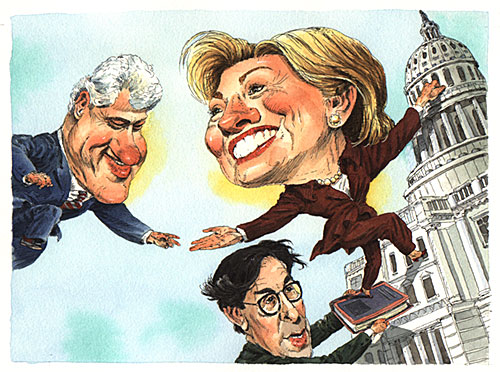 American history] and, clearly, Bush didn’t win. The votes weren’t counted, he lost by half a million votes and for the first time ever the Supreme Court intervened to give someone the presidency in a illogical, badly written decision that clearly stated it had no bearing on future or past decisions, which is totally contrary to how the Court operates.
American history] and, clearly, Bush didn’t win. The votes weren’t counted, he lost by half a million votes and for the first time ever the Supreme Court intervened to give someone the presidency in a illogical, badly written decision that clearly stated it had no bearing on future or past decisions, which is totally contrary to how the Court operates.
As a result, the presidency was tainted by illegitimacy from the beginning. 9/11 gave him an aura of legitimacy he had lacked through the 2000 election, and then he won the reelection, as it were. If you want to call it a reelection, in 2004. And then he took that to be a mandate and pursued a radical agenda that has left him in tatters. MORE
*
AUTHOR, AUTHOR: Q&A W/ GARY SHTEYNGART
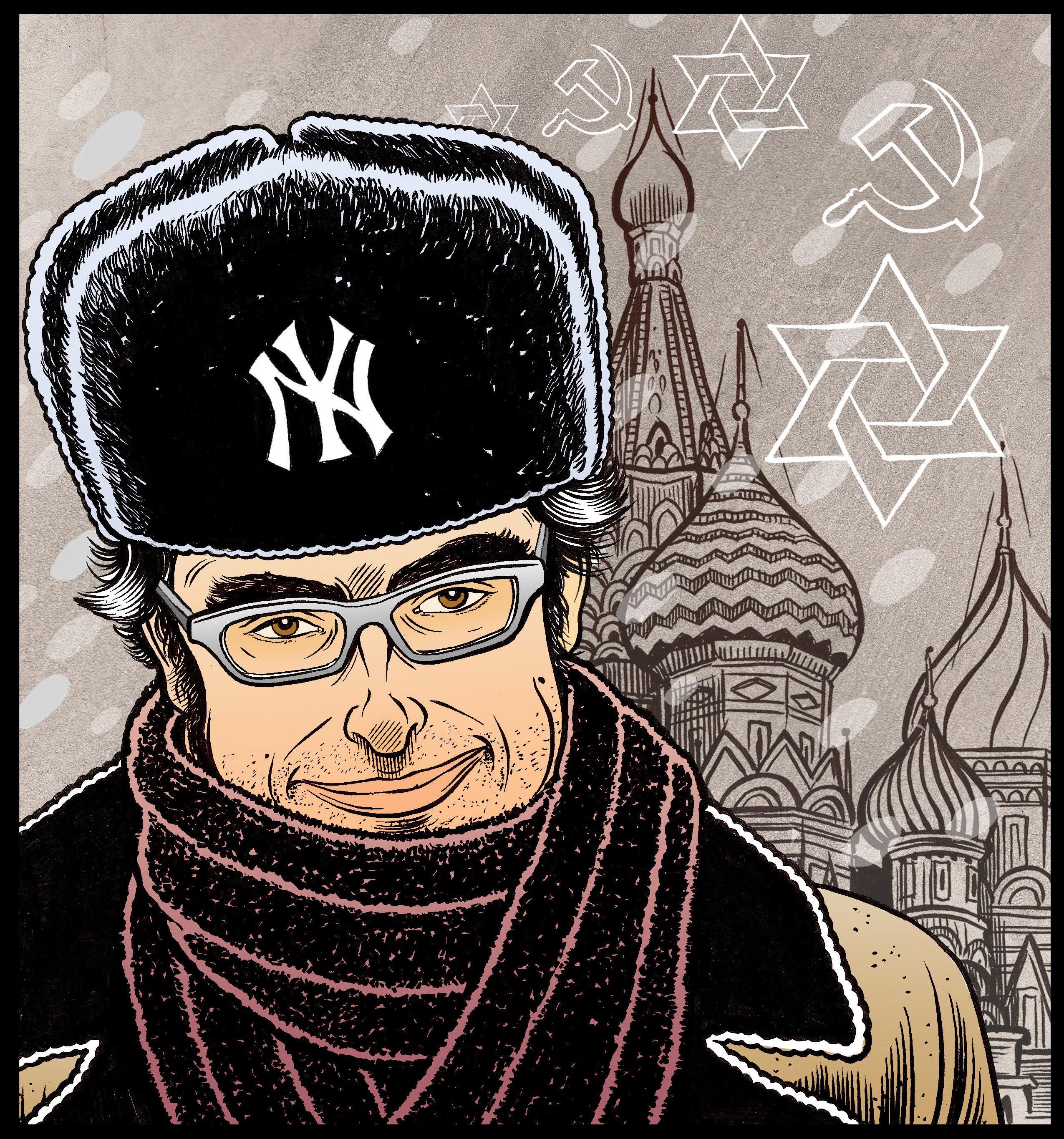
PHAWKER: You live in New York, right?
GS: I live in New York. I saw [9/11] happening from my roof. I had a girlfriend who lived in Midtown, so I went and stayed at her place. She had an apartment which didn’t really face anything, just a wall, so that kind of the subterranean feeling really fit the mood. I retreated from the world for a week or so, as did many other people. That’s the thing about writing. I need to write. Pretty soon, a month later, I was writing Absurdistan. Absurdistan, the way it was conceived — I had already started writing it — had some scenes towards end of the book where an entire city is destroyed. I thought ‘Oh my God, how am I going to write this?’ But it was planned out before 9/11 and I was very worried about writing something like that after 9/11; but in a weird way for a lot of the thing that I was writing about, there was a kind synchronicity with what happened later on in terms of Iraq, and Halliburton especially. So as I was writing it, life began to imitate life a little bit. And I wish it didn’t for the sake of the country, but not for my own fiction. So that was very strange to write at that time. MORE
*
Grumpy Old Men: A Man Called Francis
Welcome to the second installment of our Grumpy Old Men series, wherein we learn from our elders and soak up their salty yarns like Bounty Quicker Picker-Upper. Yesterday we had Robert Christgau, today Francis Davis. Tomorrow? The Pope. What’s that you say? You never heard of Francis Davis. Oh buddy, it’s good thing you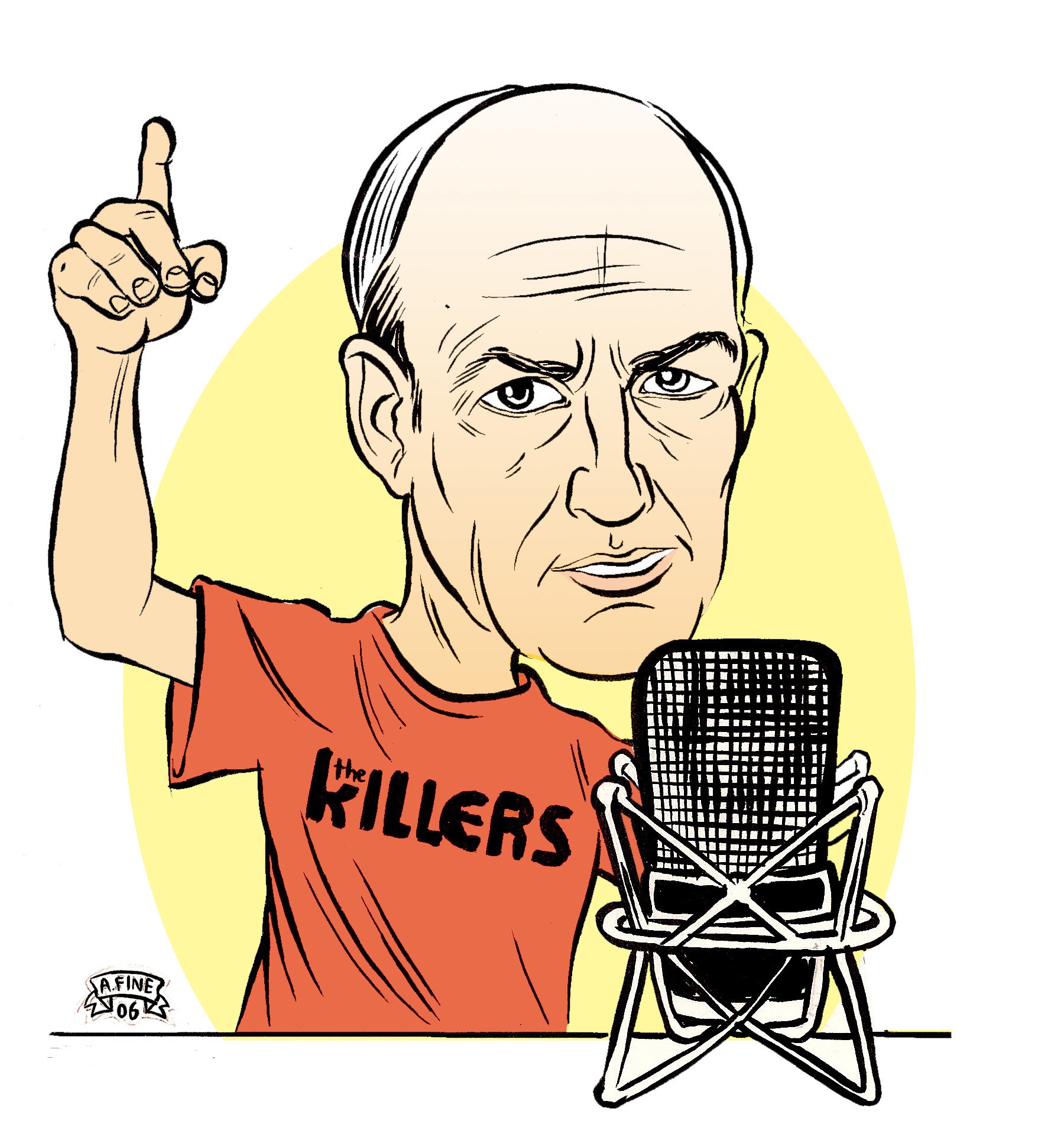 found us! Check out his CV:
found us! Check out his CV:
He has written about music, film, and other aspects of popular culture for The Atlantic since 1984 and was appointed lead jazz critic for the Voice in 2004. He was jazz critic for the Philadelphia Inquirer from 1982 to 1996, jazz editor of Musician from 1982 to 1985, and a staff writer for 7 Days from 1988 to 1990. His work has also appeared in The New Yorker, The New York Times Arts & Leisure and Book Review sections, The Nation, Connoisseur, Rolling Stone, Wigwag, The Oxford American, Stereo Review Sound & Vision, High Fidelity, the Boston Phoenix, The Absolute Sound, ARTicles, Cadence, Down Beat, Jazz Times, Elle, Audio, The World & I, The Wire, The Black American, the Village Voice Rock & Roll Quarterly, The Washington Post Book World, The New York Times Book Review, and The Times Literary Supplement (London).
Yow! He is also married to Fresh Air’s Terry Gross. We talked to him about his 10-years-in-the-making John Coltrane bio, Sheets of Sound, what it’s like to get beaten up and thrown in the hoosegow by the Philly cops for being a smartass hippie back in the Sixties, and who’s on top in bed. Just kidding. He wouldn’t answer that question. MORE
*
LIVE AND DIRECT FROM THE FIRST ANNUAL WES ANDERSON PHILADELPHIA PRESS CONFERENCE
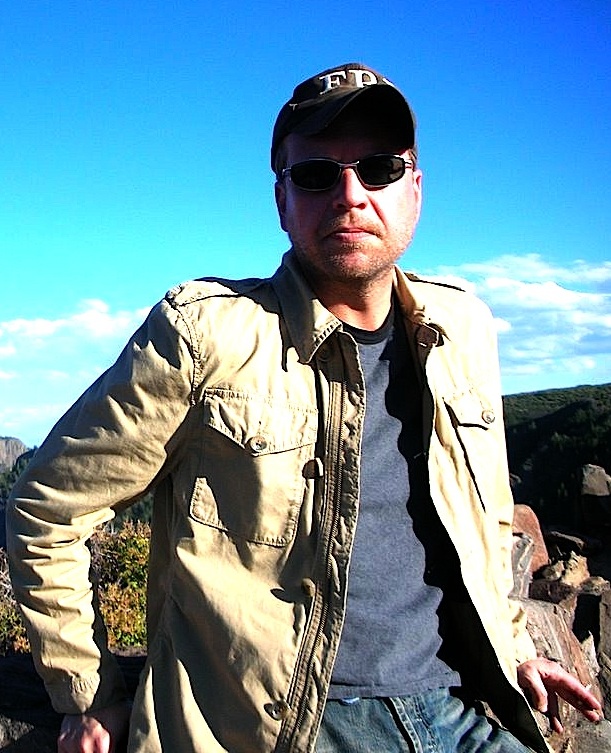 BY JONATHAN VALANIA Well, this turned out to be kind of a bust. The publicists decided to move up the press conference from 3:30 to 3 PM, with just 15 minutes notice. What, do they think us podunks in Philly have nothing better do all day than interview Wes Anderson? Okay, even if that is technically true, it’s still unprofessional and inconsiderate. So I am standing in the hallway outside suite 561 of the Four Seasons, where the press conference is well underway. Through the door, I can hear the soft muffled huzzah of Wes Anderson and Jason Schwartzman giving good quote — quote I am missing because the publicist is not letting anyone in until she messages the PR people inside that more invited journalists have shown up and are waiting to be escorted into the press conference. I pace anxiously, biting at the bit to jump through last flaming hoop that will get Phawker — and by extension you, dear reader — a personal audience with indie cinema’s reigning Pope of Cool. Each passing second feels like eons. I grow irritable and demanding. “C’mon, this isn’t Holy Communion! I was invited to this press conference, just let me in!” That, of course, went over like a fart in church — but I sure felt better. After a brief glaring contest and trading of eye-daggers, the door to suite 561 opens and we are granted entrance. There seated at a conference table is Wes Anderson, flanked by Waris Ahluwalia on his left, and Jason Schwartzman on his right, and Roman Coppola to Schwartzman’s right. The invited media are seated across from them like a Thanksgiving dinner. Sitting at the head of the table is Joey Sweeney, who gives me a look that says ‘I would kill you with my bare hands, if Wes Anderson wasn’t here right now.’ I give him the look that says, ‘If Wes Anderson wasn’t here I would be yelling ‘Bring It On!'” I’m pretty sure he got the message. Anyway, I snap some pix while the assembled journos lob softballs like, ‘It must have been fun to ride that train!’ and ‘If you could work with anyone, who would it be?’ none of which elicit a notable response. Anderson does mention that his next film will be an animated feature starring George Clooney, slated for release in 2008. And then I jump into the ring…
BY JONATHAN VALANIA Well, this turned out to be kind of a bust. The publicists decided to move up the press conference from 3:30 to 3 PM, with just 15 minutes notice. What, do they think us podunks in Philly have nothing better do all day than interview Wes Anderson? Okay, even if that is technically true, it’s still unprofessional and inconsiderate. So I am standing in the hallway outside suite 561 of the Four Seasons, where the press conference is well underway. Through the door, I can hear the soft muffled huzzah of Wes Anderson and Jason Schwartzman giving good quote — quote I am missing because the publicist is not letting anyone in until she messages the PR people inside that more invited journalists have shown up and are waiting to be escorted into the press conference. I pace anxiously, biting at the bit to jump through last flaming hoop that will get Phawker — and by extension you, dear reader — a personal audience with indie cinema’s reigning Pope of Cool. Each passing second feels like eons. I grow irritable and demanding. “C’mon, this isn’t Holy Communion! I was invited to this press conference, just let me in!” That, of course, went over like a fart in church — but I sure felt better. After a brief glaring contest and trading of eye-daggers, the door to suite 561 opens and we are granted entrance. There seated at a conference table is Wes Anderson, flanked by Waris Ahluwalia on his left, and Jason Schwartzman on his right, and Roman Coppola to Schwartzman’s right. The invited media are seated across from them like a Thanksgiving dinner. Sitting at the head of the table is Joey Sweeney, who gives me a look that says ‘I would kill you with my bare hands, if Wes Anderson wasn’t here right now.’ I give him the look that says, ‘If Wes Anderson wasn’t here I would be yelling ‘Bring It On!'” I’m pretty sure he got the message. Anyway, I snap some pix while the assembled journos lob softballs like, ‘It must have been fun to ride that train!’ and ‘If you could work with anyone, who would it be?’ none of which elicit a notable response. Anderson does mention that his next film will be an animated feature starring George Clooney, slated for release in 2008. And then I jump into the ring…
* * *
PHAWKER: Wes, your last coupla films seem to feature these characters that were full of promise in their youth — or child prodigies, even — but by time we we meet them later in their lives, for one reason or another they have never fulfilled that potential. Usually something terrible has happened that has traumatized them or thrown their lives off track and by the time we meet them at thirtysomething they are just these smoking wrecks. We spend the movie discovering what that was and watching them try and unpack all that baggage. It’s almost like the message is ‘Bad thing happen to people who grow up.’
WES ANDERSON: I like that! ‘Smoking wrecks,’ I like that…
PUBLICIST: Ok, thanks for coming, that’s all the time we have…
D’oh!
PREVIOUSLY: We Had To Kill Wes Anderson, To Save Him
CLICK TO ENLARGE SLIDESHOW
SHOCK & AWE: 15 THINGS THOU SHALL NOT KNOW ABOUT DAVID DYE AND THE WORLD CAFE
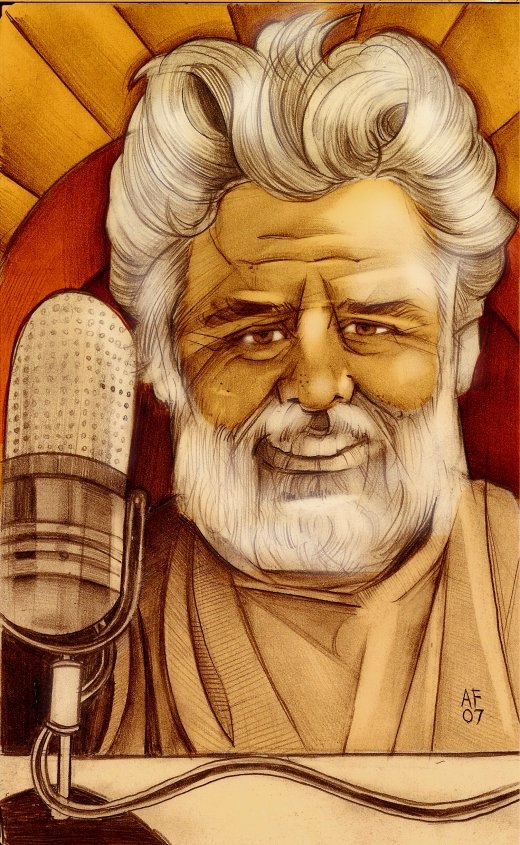
1. All things considered, he’d rather be a DJ than an author. As part of the relentless media blitz for his recently-published book The Best Of The World Cafe, Mr. Dye has been jet-setting from one affiliate to another, planting the flag in exotic capitals of commerce and culture such as Akron, Louisville and Milwaukee. There, he is invariably greeted by a grateful populace as the man who brought water to the arid, choice-less deserts of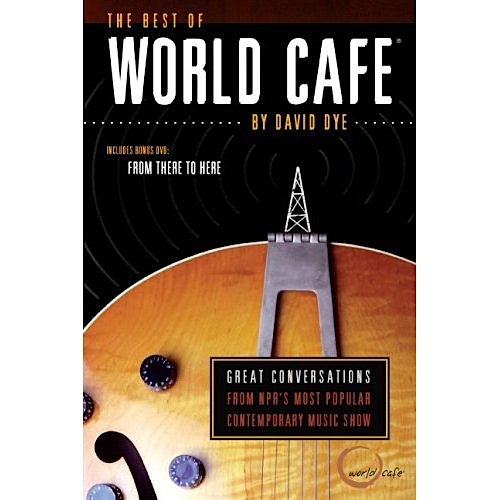 the airwaves over middle America; a welcome, earthy alternative to the grating crackle and slick drivel of corporate radio. Having just touched town in the literary mecca of Pittsburgh, Mr. Dye is supine on a bed in the Comfort Suites and eyeing, with some suspicion, the hot tub in the center of his hotel room. Hopefully he turned down the bedspread. Pro Tip: they never change or wash those things and everyone’s business is all over ‘em. Just sayin’. On a happier note, Mr. Dye reports pretty impressive numbers. Two hundred showed up for the book singing in Akron. “You know, I am grateful,” says Mr. Dye. “I can’t tell you how many times I’ve gone into a Barnes & Noble only to see Larry Kane sitting all by himself at the book signing table.” MORE
the airwaves over middle America; a welcome, earthy alternative to the grating crackle and slick drivel of corporate radio. Having just touched town in the literary mecca of Pittsburgh, Mr. Dye is supine on a bed in the Comfort Suites and eyeing, with some suspicion, the hot tub in the center of his hotel room. Hopefully he turned down the bedspread. Pro Tip: they never change or wash those things and everyone’s business is all over ‘em. Just sayin’. On a happier note, Mr. Dye reports pretty impressive numbers. Two hundred showed up for the book singing in Akron. “You know, I am grateful,” says Mr. Dye. “I can’t tell you how many times I’ve gone into a Barnes & Noble only to see Larry Kane sitting all by himself at the book signing table.” MORE
*
Q&A: Armed America Photographer Kyle Cassidy
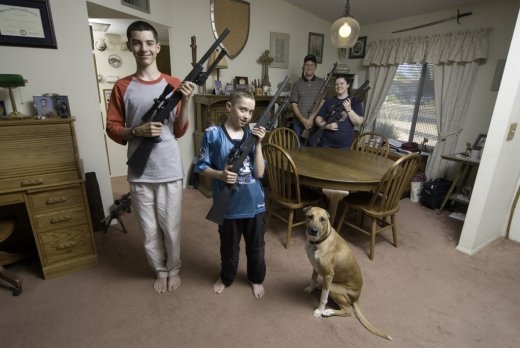
PHAWKER: What was the most unusual reason for having a gun that you heard?
KYLE CASSIDY: I think when I started the most unusual reason I heard was “to keep the government honest.” The idea of owning guns to stop the government from turning totalitarian struck me as unusual but that really turned out to be my ignorance of the gun culture, because it’s an extraordinarily common reason. Everybody’s reasoning fit into some major categories that were echoed by other people. There was a guy who’d had his great grandfather’s pistols made into a lamp, but his house was filled with other antiques, so I didn’t look at the lamp and think “that’s crazy!” There was a Civil War re-enactor in New Jersey who had three huge cannons that were, literally, the size of cars, and it might seem unusual to have three cannons in your garage but he was interested in the Civil War, so it really didn’t seem that odd. I’ve got a Victrola, so I can understand people collecting things because they’re interested in history. There was a guy in Arizona who got his son an AK-47 because the son was about to be sent to Iraq and his father wanted to make sure he knew how to use one in the event he ever needed to pick one up off the ground and defend himself. That’s a pretty unique reason. No one else in the book had said anything remotely similar, but it doesn’t strike me as unusual. In fact, it seems pretty practical. MORE
Standby for THE YEAR IN JUNK SCI and coming tomorrow THE YEAR IN MUSIC…
